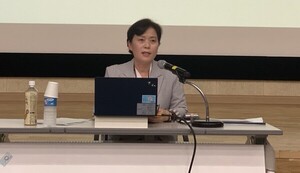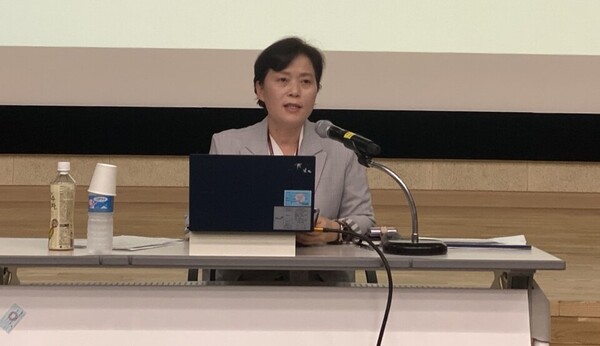What’s left to include colonoscopy in national health screening system? < Policy < Article

The government has begun analyzing the pilot project to introduce colonoscopy to the national health checkup, which ended in March. Still, there seem to be many hurdles to surmount before its actual introduction, officials said Tuesday.
The Health Examination Office of the National Health Insurance Service (NHIS) said so in a meeting with journalists covering the agency.

The colonoscopy pilot project, which began in 2019, was conducted to establish evidence for the effects and side effects of introducing colonoscopy to the mandatory health checkup. It ended in March after reaching its goal of recruiting 26,000 people.
The Health Checkup Office is conducting a final check on the pilot project results under the auspices of the National Cancer Center (NCC). It is now checking the cases of adverse events during the pilot project against the details of the NHIS’s reimbursement records.
The NCC, which conducted the pilot project, checked the side effects of patients who underwent colonoscopy as part of the pilot project by phone after the procedure. Still, it checks the cases against the NHIS’ reimbursement records to verify the facts.
Besides, the NHIS said that many issues remain to be discussed with experts regarding the introduction of the national colonoscopy screening program, such as establishing infrastructure for medical institutions dealing with emergencies after colonoscopy, training medical personnel to perform colonoscopy, setting up a checkup cycle after colonoscopy, and changing the target.
The NHIS explained that although the pilot project has ended, the discussion could continue until at least next year or even 2026 if approached more cautiously.
“Based on the pilot project results, we will conduct a final check on the effectiveness and safety of colonoscopy and consider whether to introduce the system,” said Lee Young-hee, head of the Health Examination Office.
Lee added that introducing pulmonary function tests to diagnose chronic obstructive pulmonary disease (COPD) needs to be reviewed, including cost-effectiveness. Therefore, the Ministry of Health and Welfare and the Korea Disease Control and Prevention Agency will discuss whether to consider adding this test.
Dyslipidemia screening has been conducted every four years since 2018, starting at 24 for men and 40 or older for women. In response to the request to review the screening frequency, the NHIS is reviewing the medical feasibility and cost-effectiveness of the screening age through collaboration with the Health and Welfare Ministry, the KDCA, and experts, Lee said.
Regarding the lung cancer screening program, which has been gradually expanding the number of eligible people since its introduction in August 2019, Lee said the NHIS is considering expanding it to those at high risk of lung cancer and e-cigarette smokers.
In response to criticisms of price competition and declining quality due to the proliferation of health screening centers, Lee said the NHIS would urge the medical community to self-correct through the “wise choice campaign” to reduce unnecessary excessive medical care.
“The Ministry of Health and Welfare sets the cost of national health checkups, and there is no price competition because the same checkup fee is paid by the NHIS regardless of the size of the checkup center,” Lee said. “However, private comprehensive checkups are not covered by health insurance, so use price discounts.”
Competition for price discounts among screening centers can lead consumers to spend unnecessary medical expenses, but Lee added that there is no legal basis for the NHIS to regulate private comprehensive medical examinations.
“The NHIS and the National Academy of Medicine of Korea are holding the ‘wise choice campaign’ and symposiums to reduce unnecessary excessive medical care, and we are calling for self-motivated efforts by the medical community by proposing wise health checkup recommendations developed by the academy,” she explained.
To improve the quality of medical examination services continuously, the NHIS selects medical examination centers with a high probability of poor examination through analysis of examination data, and conducts visits, inspections, and guidance at all times, and has established a mechanism to cancel the designation through administrative penalties, such as suspension of business, for medical examination centers that receive consecutive ‘unsatisfactory’ ratings, Lee added.
Lee also disclosed the status of administrative penalties for checkup centers over the past five years, noting that 1,052 institutions were suspended, five were de-listed, and 16 were fined from 2020 to July 31, 2024.
link






